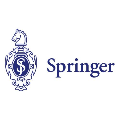This work studies the joint beamforming design problem of achieving max-min rate fairness in a satellite-terrestrial integrated network (STIN) where the satellite provides wide coverage to multibeam multicast satellite users (SUs), and the terrestrial base station (BS) serves multiple cellular users (CUs) in a densely populated area. Both the satellite and BS operate in the same frequency band. Since rate-splitting multiple access (RSMA) has recently emerged as a promising strategy for non-orthogonal transmission and robust interference management in multi-antenna wireless networks, we present two RSMA-based STIN schemes, namely the coordinated scheme relying on channel state information (CSI) sharing and the cooperative scheme relying on CSI and data sharing. Our objective is to maximize the minimum fairness rate amongst all SUs and CUs subject to transmit power constraints at the satellite and the BS. A joint beamforming algorithm is proposed to reformulate the original problem into an approximately equivalent convex one which can be iteratively solved. Moreover, an expectation-based robust joint beamforming algorithm is proposed against the practical environment when satellite channel phase uncertainties are considered. Simulation results demonstrate the effectiveness and robustness of our proposed RSMA schemes for STIN, and exhibit significant performance gains compared with various traditional transmission strategies.
翻译:这项工作研究了在卫星-地球综合网络(STIN)中实现最大速率公平化的联合波束设计问题,在卫星-地球综合网络(STIN)中,卫星向多波束多播卫星用户提供广泛覆盖,地面基地站为人口稠密地区的多个蜂窝用户提供服务,卫星和地面基地台(BS)在同一个频带中运作。由于分率的多重接入(RSMA)最近成为非横向传输和多层无线网络强力干扰管理的一个有希望的战略,我们提出了两个基于RSMA的STIN计划,即依赖频道状态信息的共享的协调计划以及依赖CSI和数据共享的合作计划。我们的目标是最大限度地提高所有SUS和CUS之间在卫星和BS传输电力限制下的最低公平率。建议采用联合波束算法,将原始问题改造成一个可以迭接式解决的大致等同的直线。此外,在考虑卫星信道阶段展示各种重要成果时,还提出了针对实用环境的基于预期的稳健联合演算法。





